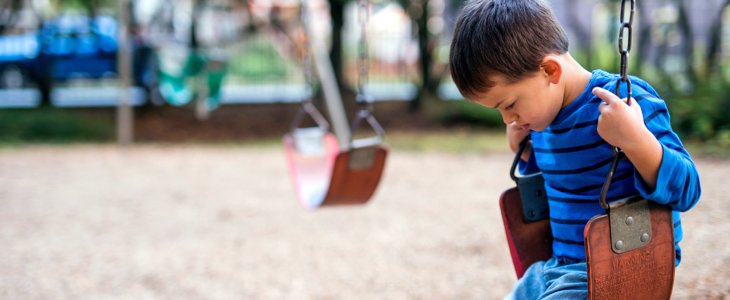Child custody cases are difficult, and they become even more challenging when domestic violence is added. Whether you’re the victim of domestic violence, or allegations have been made against you, the dynamic of your custody case will change. Family law judges take domestic violence seriously and want to ensure they act in the best interests of the child.
Orlando Family Team understands that your primary concern, as either a victim or the accused parent, is the safety of your child and protecting your parental rights. That’s why we represent parents on both sides of child custody cases involving domestic violence allegations. We’re here to advocate for you and your family today.
What Is Considered Domestic Violence In Florida?
Domestic violence has a rather broad definition. While physically striking someone may be considered domestic violence, the term covers all of the following:
- Assault
- Battery
- Aggravated assault or battery
- Sexual assault
- Sexual battery
- Stalking
- Aggravated stalking
- Kidnapping
- False imprisonment
Domestic violence also includes any other criminal offense resulting in physical injury or death. The law protects parents who have a child in common, which means domestic violence can have a direct impact on a pending child custody case.
Courts are concerned about how domestic violence affects children because violence is usually not an isolated incident. There is often a pattern of abuse that can grow more serious over time, placing not just the other parent but the child in danger. Since domestic violence is broadly defined, there are different behaviors that could potentially qualify and thereby impact the custody case.
How A Domestic Violence Conviction Will Affect Child Custody
In Florida, judges need to determine how the parents should share custody. That includes physical custody (time-sharing with the child) and legal custody (decision-making authority over the child). However, a judge’s primary concern has to be the best interests of the child. That’s where domestic violence can complicate matters.
If a parent has been convicted of a misdemeanor or worse involving domestic violence, the court will presume that it would be harmful to the child to allow that parent to have custody. The parent who has been convicted of domestic violence will then have the burden of proving that he or she should be allowed to have custody or visitation rights. That puts the convicted parent in the difficult position of defending his or her parental fitness before the judge.
Will Domestic Violence Allegations Affect Custody?
A parent doesn’t have to have a conviction of domestic violence for allegations to make a difference in custody. Because judges want to be cautious when deciding custody, they will consider evidence of domestic violence during the parents’ marriage or relationship. That evidence might include:
- Photographs and videos
- Social media posts
- Texts, emails, and other written admissions of violence
- Witness testimony
- Testimony from the other parent
Even though the accused parent has not been convicted of domestic violence in criminal court, the judge can find that domestic violence in fact occurred. The standard of proof in civil court is known as preponderance of the evidence, and it’s easier to meet than the reasonable doubt standard of criminal court.
The Consequences Of Domestic Violence
If the court believes domestic violence has occurred, whether because of a conviction or because of evidence submitted during the child custody proceedings, it will be difficult for the convicted or accused parent to win joint custody. The judge may not grant any time-sharing or decision-making authority to the convicted or accused parent.
Sometimes, judges assign supervised visitation rights to parents who have been found to have committed domestic violence. Supervised visitation is intended to protect the child by putting restrictions on the offending parent’s time-sharing. Courts have to act in the best interests of the child and will impose potentially harsh rules to do so.
How To Protect Your Child And Your Parental Rights
Because of the serious consequences it can have on custody, it’s imperative to notify your attorney right away if there are either incidents or allegations of domestic violence.
If you are the parent alleging domestic violence, your attorney will work to gather the evidence – including any criminal convictions – proving what the other parent did. Remember, the fact that the other parent has committed domestic violence is not necessarily the end of the court’s analysis. It merely shifts the burden to that parent to prove that he or she should spend time with the child. Your attorney will go to work presenting evidence and arguments for why time-sharing and decision-making authority should be denied or severely limited for the abusive parent.
On the other hand, if you are a parent accused of domestic violence, we will consider the evidence against you and get to work refuting it. As part of our work, we will assemble our own evidence and arguments to both contradict the accusing parent and to show why you should be allowed time-sharing and decision-making rights. In the event the judge agrees with the accusing parent and determines you have committed domestic violence, you will need to be prepared to explain why you should have custody. Our job is to make this argument to the judge.
Contact Our Orlando Child Custody And Domestic Violence Attorney
Domestic violence will change the tone and outcome of what may have already been a contentious child custody matter. Experienced legal counsel is essential to defending your child’s safety and your parental rights, no matter which side of the case you are on. Turn to Orlando Family Team. Call our trusted attorneys today.
